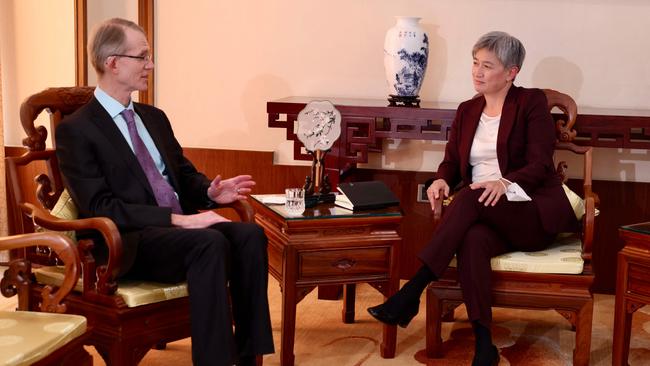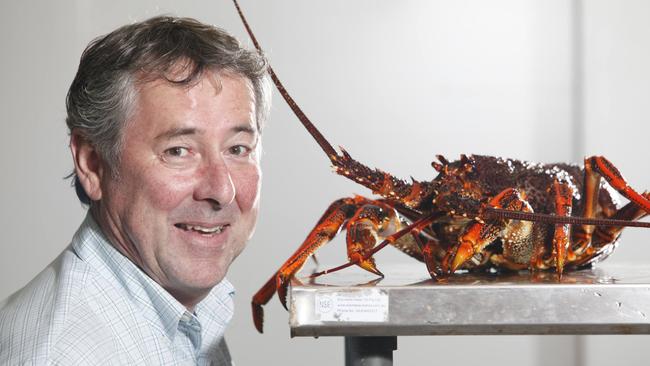
Even if ties seem to be on the mend, or improving, the lesson of the past three years for exporters has been the importance of diversification and looking to other markets – even if they are much smaller than China’s.
In 2019 exporters were riding high on record trade levels with China when they were hit with a combination of tariff and non-tariff barriers from China. This was followed by Covid-19 travel lockdowns which have effectively remained since January 2020.
Australian executives with operations in China have not been able to visit them for three years. China continues to be Australia’s largest trading partner, and the extent of goodwill and trade between Australians and their Chinese counterparts – despite political tensions – is a testament to both the fundamental complementarity between the two economies.
Business ties have been enhanced and made easier by the considerable number of Chinese- born migrants to Australia, which date back to the days of the Hawke government.
But exporters have been burned over the past few years and are determined never to put as many eggs in the China basket as they did in 2019.
Trade with China was built on years of goodwill and travel back and forth, and the free-trade agreement of 2015 paving the way for record trade of more than $200bn.
But the past few years have forced businesses, which were heavily dependent on China, to rethink their business models and reinvent themselves.
It appears that China itself has realised the importance of re-engaging with the rest of the world after three years of isolation. Its own economic strength is also dependent on its role in the global trading system.
Just as Australia was forced to reinvent itself when Britain joined the Common Market in 1973, so have exporters been forced to reinvent their business models when hit with barriers to China markets.
Indian students have become increasingly important for Australian universities because Chinese students were unable to travel.
Some universities are looking to Vietnam as a new market, wary about depending too much on a rapid revival of Chinese students once borders reopen in 2023.
While the tourist industry would love a return to the days when more than 1.5 million Chinese were visiting a year, spending more than $12bn annually, it has had to survive three tough years and is looking forward to a more cautious future. Many of its employees have gone home or found jobs elsewhere.
In short, sectors of industry that were dependent on China have been hit with a worst-case scenario and have survived and responded.
China may be dropping its “wolf warrior” diplomacy, but the world of 2022 is much warier about its intentions.
Australia’s careful re-engagement under the Albanese government is on different terms than the heady days of 2015 when the FTA was signed.
After years of uncertainty about coal going to China in 2018 and 2019, the industry has found other markets – buoyed by high prices this year in the wake of the Russian invasion of Ukraine.
In conversations with people who have done business with China, there is an interest in the sheer size of the China market but a wariness about the potential for business to be hit again if there is a new political fallout.
This was spelled out by Andrew Ferguson, who runs a South Australian lobster business which had 20 years of ties with China.

He woke up one morning in October 2020 to find $360,000 worth of lobsters on the tarmac at Shanghai airport were effectively destroyed because Chinese Customs insisted they needed to be tested for metals.
Would he like to resume selling lobsters to China? Yes. Did he have strong personal ties with his customers there? Yes.
But his old customers who catered to up-market restaurants in Shanghai have moved on and, as he said, what happens to the trade if some politician says something in future which offends Beijing?
The barley farmers of WA would no doubt like to resume selling to China and the Chinese beer companies would love to buy our barley as they were until the 80 per cent tariffs of May 2020 ended what had been a roaring trade. But even if the tariffs were dropped, will farmers be wary of focusing so heavily on China as they once did?
In a chat with this reporter recently, an executive in another sector which had been hit by non-tariff barriers expressed wariness about having to go through another long period of uncertainty if China effectively reopened to his commodity, only to play the same games as it did before.

Patrick Hutchison, the chief executive of the Australian Meat Industry Council, said the beef industry was watching closely to see if the unofficial bans on several Australian abattoirs by Chinese customs officials might be dropped.
But he said the sector was also looking to increasing its exports to the UK, India and Indonesia in the wake of closer trade ties and new trade agreements.
While Australia has gone through a period of painful reinvention, the economy has held up remarkably well.
China has disengaged from the world and has a rocky period immediately ahead as it navigates the surge in Covid-19 cases.
2023 will be when the world “rediscovers” China with visits by political and business leaders, wanting to make their own first hand assessment of the country.
These are expected to include Albanese, US Secretary of State Antony Blinken, Brazil’s new President, Lula da Silva, and a delegation of Australian chief executives planned for the second quarter.
But 2023 will see a world much more wary about putting new investment dollars into China as it assesses the intentions of the Xi administration.
Importers are also much warier about depending so heavily on sourcing from China, despite its cheaper cost base.
There is a willingness to re-engage with the world’s second largest economy but also a caution born of some painful lessons.




As the business sector awaits the outcome of Penny Wong’s “historic” visit to Beijing to mark 50 years of Australia-China political ties, and looks forward to easier ties with China, the Australian export sector of 2022 is very different to the one of 2019.